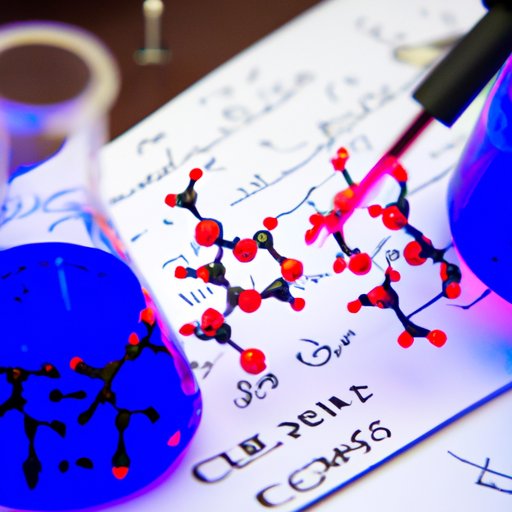Introduction
Chemistry is a branch of science that studies the composition, structure, properties, and interactions of matter. It is the study of the elements and compounds made up of atoms, molecules, and ions. Chemistry is used to explain the behavior of matter and its changes during chemical reactions. It is a vital part of our daily lives, impacting everything from the food we eat to the air we breathe.
Exploring the Basics of Chemistry: A Look at the Science Behind Chemical Reactions
A chemical reaction is a process that involves the rearrangement of atoms or molecules to form new substances. During a chemical reaction, bonds between atoms are broken and new bonds are formed. This process typically requires energy, which can come from light, heat, or electricity. There are five main types of chemical reactions: synthesis, decomposition, single-displacement, double-displacement, and combustion.
Synthesis reactions involve combining two or more reactants to form a single product. Decomposition reactions involve breaking down one reactant into two or more products. Single-displacement reactions involve replacing one atom with another in a compound. Double-displacement reactions involve exchanging two atoms between two molecules. Combustion reactions involve reacting a fuel with oxygen to produce heat and light.
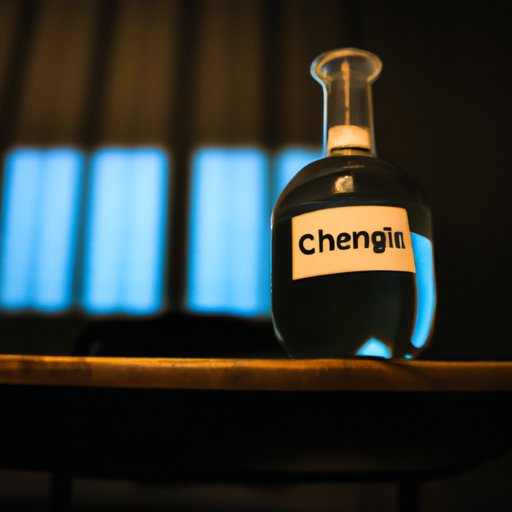
The Role of Chemistry in Everyday Life and How It Impacts Our World
Chemistry plays an important role in everyday life. From the food we eat to the medicines we take, chemistry is involved in the production of many of the items we use on a daily basis. Chemistry is also used to clean water, treat sewage, produce energy, and create building materials. In addition, chemistry is used in agriculture, food processing, and manufacturing.
Chemistry also has a significant impact on the environment. Pollutants such as carbon dioxide, sulfur dioxide, and nitrogen oxides are released into the atmosphere through chemical processes such as burning fossil fuels. These pollutants can cause air pollution, acid rain, and global warming. Chemistry is also used to clean up contaminated environments, such as oil spills.
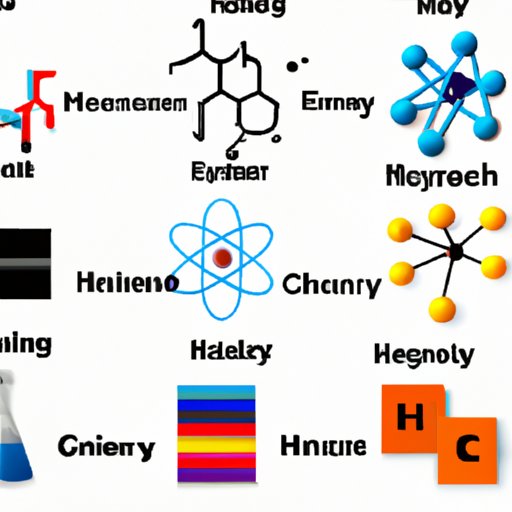
An Overview of Different Fields of Chemistry and Their Applications
Chemistry is divided into several distinct subfields, each with its own unique focus and applications. Organic chemistry is the study of carbon-containing compounds, such as those found in living organisms. Inorganic chemistry focuses on non-carbon-containing compounds, such as metals and minerals. Physical chemistry is the study of the physical properties of matter and how they interact with energy. Analytical chemistry is the study of the composition of matter.
Investigating the History of Chemistry and Its Pioneers
The history of chemistry goes back thousands of years. Early pioneers in the field of chemistry include the ancient Greek philosophers Democritus and Aristotle, who developed theories about matter and its composition. During the Middle Ages, alchemists attempted to turn base metals into gold and discover the elixir of life. In the 18th century, chemists such as Antoine Lavoisier and Joseph Priestley began to develop the modern understanding of chemistry.
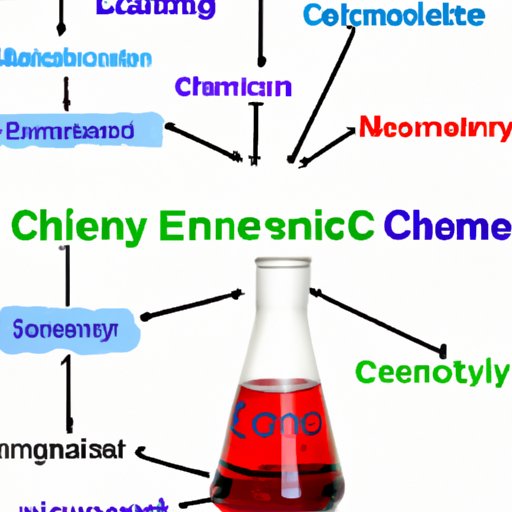
Examining the Fundamental Concepts of Chemistry and How They Relate to Other Sciences
The fundamental concepts of chemistry are essential for understanding the behavior of matter and its interactions with energy. These concepts include atomic theory, chemical bonds, stoichiometry, thermodynamics, and kinetics. Chemistry is closely related to other sciences, such as physics, biology, and geology. For example, the laws of thermodynamics apply to both chemistry and physics, while the principles of genetics are based on the study of biological molecules.
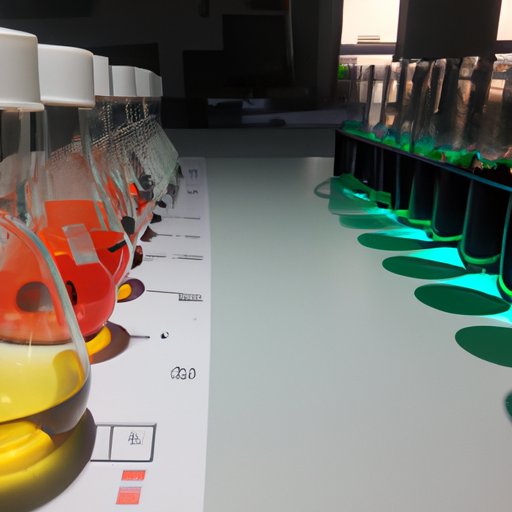
Analyzing the Most Common Chemical Reactions and Their Uses
The most common chemical reactions are oxidation-reduction, acid-base, hydrolysis, condensation, and precipitation. Oxidation-reduction reactions involve the transfer of electrons between reactants. Acid-base reactions involve the exchange of protons between reactants. Hydrolysis reactions involve the breakdown of molecules using water. Condensation reactions involve the joining of molecules together. Precipitation reactions involve the formation of insoluble products.
These reactions are used in a variety of applications. Oxidation-reduction reactions are used in electrochemical cells, such as batteries. Acid-base reactions are used in titration experiments. Hydrolysis reactions are used in digestion and fermentation. Condensation reactions are used in the production of polymers. Precipitation reactions are used in separation processes.
Investigating the Role of Chemistry in Industry and Manufacturing
Chemistry is an important part of many industries and manufacturing processes. Chemicals are used to create products such as plastics, pharmaceuticals, dyes, and fertilizers. Chemistry is also used in the production of fuels, such as gasoline, diesel, and jet fuel. In addition, chemistry is used to clean wastewater and purify drinking water.
Using chemistry in industry and manufacturing has many benefits. It can reduce costs, improve efficiency, and increase safety. It can also reduce waste, conserve resources, and increase yields. In addition, chemistry can be used to create products that are safer, more durable, and more environmentally friendly.
Conclusion
This article has explored what chemistry is and how it impacts our world. We have looked at the science behind chemical reactions, the role of chemistry in everyday life, different fields of chemistry, the history of chemistry, the fundamental concepts of chemistry, common chemical reactions, and the role of chemistry in industry and manufacturing. Understanding chemistry is essential for understanding the world around us and the role it plays in our lives.
(Note: Is this article not meeting your expectations? Do you have knowledge or insights to share? Unlock new opportunities and expand your reach by joining our authors team. Click Registration to join us and share your expertise with our readers.)
